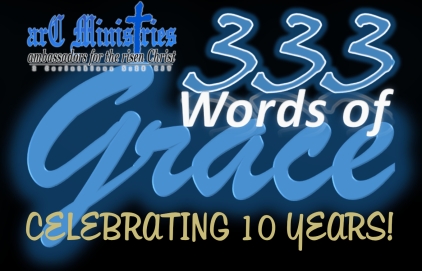Friday, May 10, 2024
“And the Gentiles shall come to thy light, and kings to the brightness of thy rising” (Isaiah 60:3 KJV).
What can today’s Scripture teach us about spiritual calligraphy?
God’s purpose in giving Israel covenants was to bless Gentiles too, as the Apostle Paul argued when citing several Old Testament verses in Romans 15:8-12: “Now I say that Jesus Christ was a minister of the circumcision for the truth of God, to confirm the promises made unto the fathers: And that the Gentiles might glorify God for his mercy; as it is written [Psalm 18:49], For this cause I will confess to thee among the Gentiles, and sing unto thy name. And again he saith [Deuteronomy 32:43], Rejoice, ye Gentiles, with his people. And again [Psalm 117:1], Praise the Lord, all ye Gentiles; and laud him, all ye people. And again, Esaias saith [Isaiah 11:10], There shall be a root of Jesse, and he that shall rise to reign over the Gentiles; in him shall the Gentiles trust.”
The Holy Spirit, through the Apostle Peter, reminded Israel of the covenant God made with their forefathers: “Yea, and all the prophets from Samuel and those that follow after, as many as have spoken, have likewise foretold of these days. Ye are the children of the prophets, and of the covenant which God made with our fathers, saying unto Abraham, And in thy seed shall all the kindreds of the earth be blessed. Unto you first God, having raised up his Son Jesus, sent him to bless you, in turning away every one of you from his iniquities” (Acts 3:24-26).
As per this “the gospel of the circumcision” (Galatians 2:7—Peter’s Gospel), Israel was to believe the Gospel of the Kingdom (Jesus is Christ/Messiah). In Christ’s kingdom, they would teach the Gentiles (today’s Scripture). Alas, the Jewish people overwhelmingly refused to receive Jesus as Christ, whether during Matthew to John or early Acts. God could not reach the Gentiles because His chief nation, Israel, was unbelieving, thus failing to become His earthly people whom He could utilize.
Moreover, Israel had become utterly disgusting in the eyes of the Gentiles. In spite of God’s plan, the nations saw the Jewish people as a hypocritical group no better than the rest of the world….

